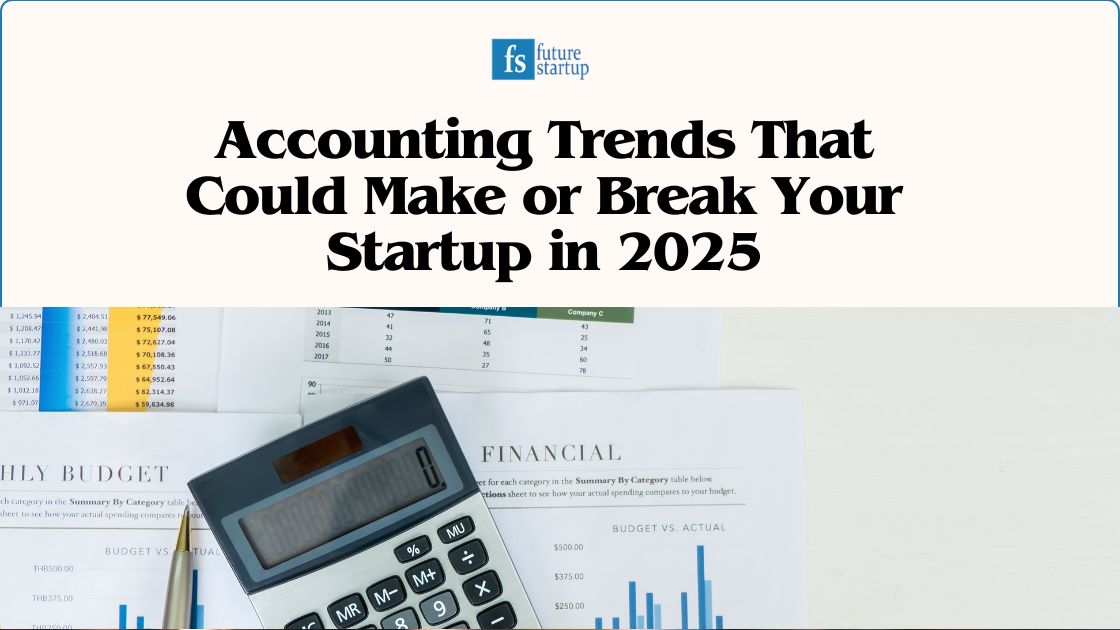
Running a startup in 2025 is thrilling, but it can also be financially unforgiving. With new tech reshaping finance teams and regulators introducing fresh compliance hurdles, the way founders approach accounting can make the difference between scaling and stalling.
From AI-powered forecasting to ever-evolving financial rules, startups need to understand what’s changing—and how to respond. Here’s what’s on the horizon, and why it matters.
Startups move fast. Your accounting software should, too. According to QuickBooks, 91% of startups using real-time bookkeeping say they’re better equipped for audits and tax season. That’s not just about peace of mind—it’s about avoiding costly surprises.
With more early-stage companies using cloud-based tools, the days of end-of-month reconciliations are numbered. Instead, continuous data entry, syncing with banks, and instant access to key financial indicators give founders the agility they need.
Why it matters:
What you can do:
You don’t need a finance degree to know that spreadsheets aren’t scalable. In fact, 72% of finance leaders are planning to invest in AI and machine learning by the end of the year (Deloitte).
Why? Because it works.
This isn’t about replacing accountants. It’s about supercharging them.
The takeaway? Adopt early. Even basic AI tools can provide insights that shift your entire business strategy.
Running out of money is the most common startup killer. The U.S. Bureau of Labor Statistics found that 20% of startups fail in their first year, and 65% by year 10—most often due to poor financial planning.
Cash flow mismanagement ranks as the top financial issue among startups, according to QuickBooks. Yet many early-stage founders still operate without a structured plan.
That’s where a business owner’s cash forecast comes in. When done monthly, forecasting boosts survival odds by 33%.
Tools like Float, Pulse, or even Google Sheets templates can get you started. The key is consistency.
In 2024 alone, over 120 new financial compliance rules were introduced globally (Gartner). Startups can no longer afford to treat compliance as an afterthought. The cost of noncompliance—penalties, audits, loss of investor trust—is too high.
It’s not just tax codes. It’s:
Many early-stage startups overlook payroll until it’s too late. Yet payroll mistakes account for 12% of early startup failures (BLS).
Investors want more than passion and a pitch deck. They want proof you understand your financial future.
Startups using predictive analytics are 20% more likely to secure funding (PwC). These tools let you model different growth scenarios, understand customer lifetime value, and forecast burn rate—all data points VCs care about.
Even better? Predictive analytics gets more accurate over time, especially when paired with AI.
Only 26% of startups meet optimal financial control benchmarks (PwC). That’s a scary stat, considering the stakes.
Being financially literate doesn’t mean becoming a CPA. It means knowing:
And it means knowing when to hire help.
Pro tip: Build an internal finance dashboard. Keep tabs on revenue, expenses, and forecasted growth in one place. Tools like Fathom or LivePlan can make this easier.
The future of accounting is already here—it’s just not evenly adopted yet. Based on 2025 accounting trends, startups that proactively embrace change will thrive. Those that don’t will struggle to survive.
Accounting isn’t just backend admin. It’s a growth strategy. For early-stage companies in 2025, getting your finances right could be the difference between landing your next round—or laying off your team.
So, where will your startup stand?
